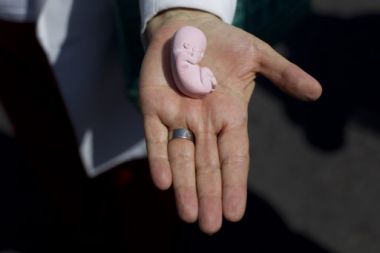Three parent embryos unpopular with voters

Voters are lukewarm about the Government's decision to change the law to allow three-parent embryos.
A new ComRes poll found a 'negative' rating across all age ranges, with young people saying the change made them less likely to vote Conservative by a margin of 3:1, a figure that rose to almost 20:1 among older voters.
When asked whether it was more or less likely to make them vote Tory, only three per cent said more. Over a quarter (27 per cent) said the change to the law made them less likely to vote Conservative, rising to 29 per cent among those who voted for the party in the 2010 election.
Figures were similar among Labour and Lib Dem supporters, with more than a quarter (27 per cent and 28 per cent respectively) saying they were "less inclined to vote Conservative in May" as a result of the policy. Only four per cent and six per cent respectively said they were more likely to vote for the party.
The poll was commissioned by the Christian Institute, which warned of a voter backlash in May European elections.
The organisation's director, Colin Hart, criticised the "inadequate" public debate on the issue, saying there were "real safety fears".
"This poll shows the constant weakening of laws designed to protect the public are not popular," he said.
"This is about producing genetically modified babies with altered DNA which will be passed down to future generations. No one knows what the consequences will be."
Mr Hart said there had not been a proper assessment of the technology used in the process and that there needed to be a serious debate on whether "playing God" with a person's mitochondrial DNA was the best solution to genetic disorders.
He also raised concerns about the message the change in the law was sending to disabled people.
"No one doubts the heartache caused by problems associated with mitochondrial genetic disorders, but mercifully these problems affect a relatively small number of parents and children each year," he said.
"But there are serious medical and ethical issues around this policy change which have not been addressed. No other country in the world is legislating to allow these procedures."











